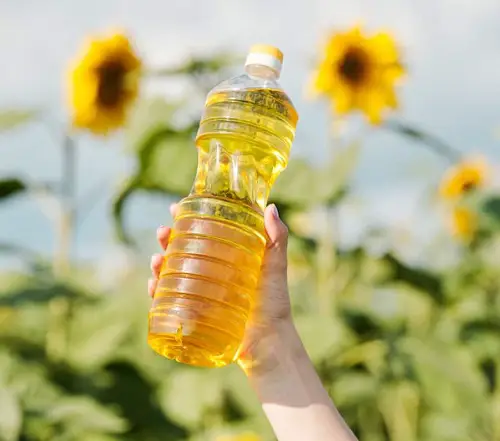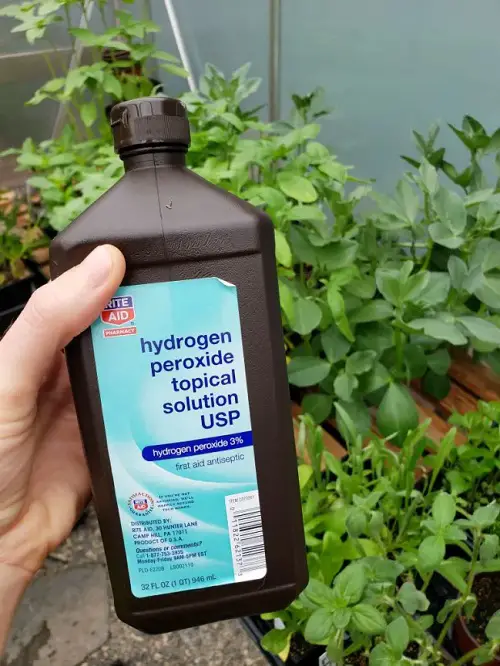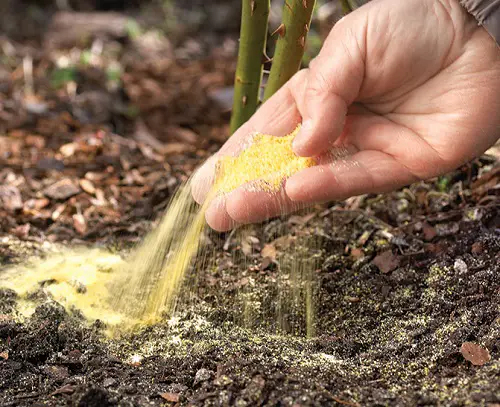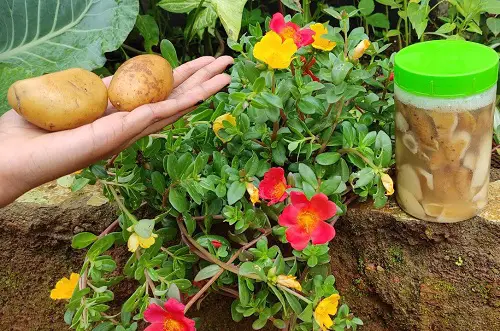Did you know you could just grab one of these Common Items in Home to Solve All of Pest Problems? Stay tuned to learn more.
If you are looking for an easy and cheap way to keep your plants safe in your home and yard, then do not miss this list of the most Common Items in Home to Solve All of Pest Problems!
Common Items in Home to Solve All of Pest Problems
1. Vinegar

Vinegar is a natural weed killer and can be used as a spray to target and kill pests, too. Just dilute it in water first and don’t spray it on your other plants because it can be harmful for them.
You can also increase its effect by adding 3-4 drops of liquid dish soap to the solution–it will make the solution a bit sticky and it will stay on the plants, keeping away pests even after drying up. You can easily take care of aphids, mealybugs, spider mites, and whiteflies this way.
2. Dish Soap
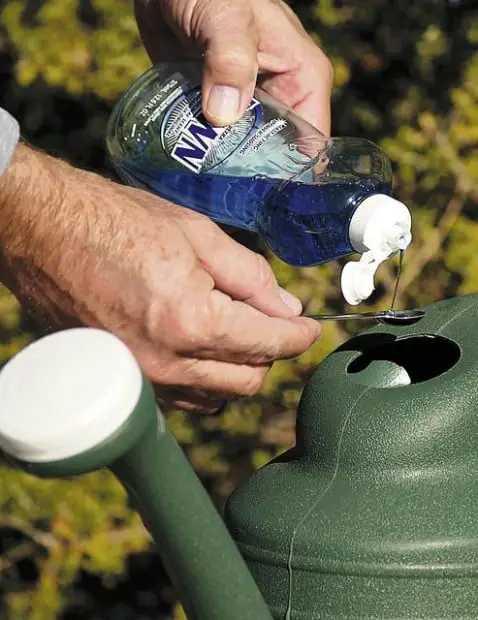
A little bit of dish soap can work wonders for your garden. How so? It can take care of aphids and mites. Soap is strong and dissolves the exoskeleton of these pests, so they dehydrate and eventually die.
Take a spray bottle, fill it with water, and then add a tablespoon of mild dish soap and another tablespoon of vegetable oil (neem, olive, or canola). Mix it up and use this spray directly on the foliage of the plants where these pests like to linger in your garden. Pretty soon, they will all die.
3. Garlic
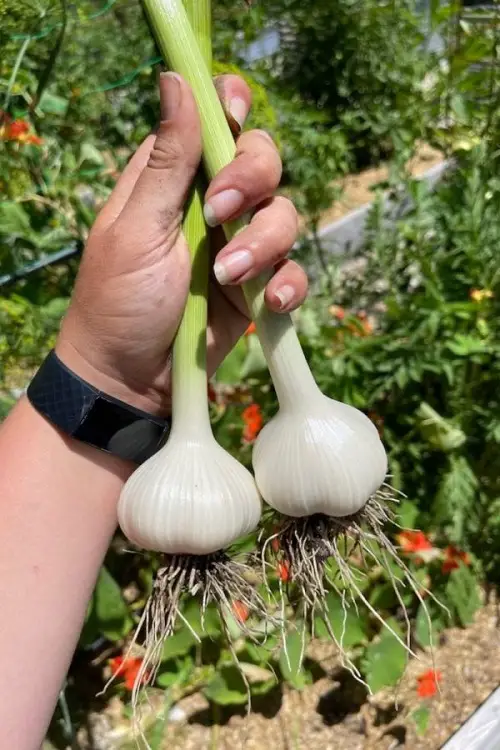
Who knew a common item such as garlic would help you solve your garden’s pest problem? And it’s really simple! All you need is a garlic spray, which you can make by blending two bulbs of garlic in a bit of water.
Let it steep overnight, and then strain it. Spraying it on your plants will help you get rid of beetles, root maggots, and aphids. You can read about it in detail here.
4. Hot Peppers or Hot Sauces
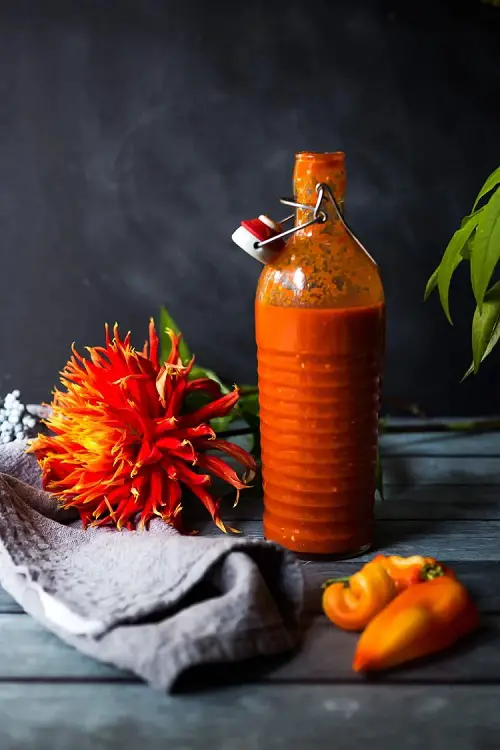
A simple but fiery thing like hot pepper and hot sauce can repel and deter many garden pests. Such sauces and peppers are rich in capsaicinoids, which gives them heat and pungency.
Mix 2-4 tablespoons of sauce or a tablespoon of hot pepper in about 4 cups of water and add 8-10 drops of dish soap liquid to this mix. Shake the solution well and then test it on a single leaf to check for leaf burning. If the leaf is fine, you can spray it on the other parts.
A hot pepper spray can take care of aphids, caterpillars, spider mites, whiteflies, and even thrips.
5. Beer
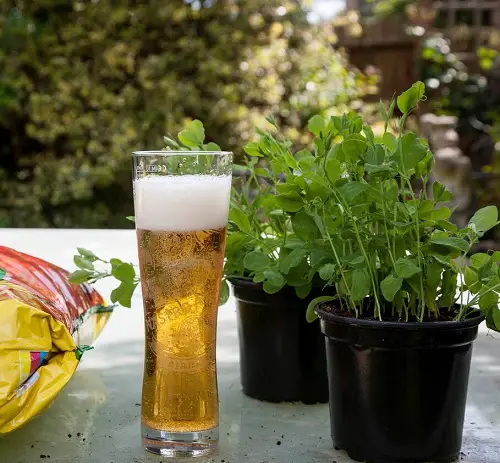
Beer is often used as a pest trap, like slugs and snails, because they love it just as much as you. All you need is a shallow container (like a jar lid, saucer, or plastic cup) and cheap beer.
Pour beer into this shallow dish or container until it’s about halfway full and leave it overnight. You’ll find it filled with slugs and snails so you can easily pick them up and dispose them.
Pro Tip: Dig a small hole in the soil so that the top edge of the container is level with the ground. We need the slugs to be able to climb into the container.
6. Baking Soda
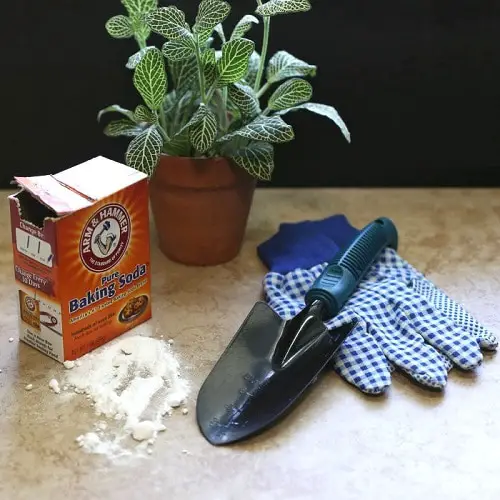
Baking soda is great for a ton of things, and it also works as an effective fungicide. Mix it with dish soap and water and it will help you deter soft-bodied pests.
It won’t kill the pests, but they will move away because baking soda creates an unsuitable environment for them. You can also use it to treat powdery mildew.
7. Egg Shells
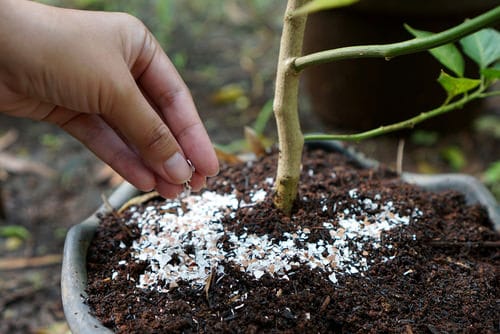
Don’t throw away eggshells! This common kitchen item can help you keep slugs and snails away from the produce.
If you have certain plants or veggies that slugs love to attack, crush eggshells and sprinkle them around the base of the plant. They’re pointy and rough, so the slugs will avoid them. Over time, they will decompose and also add calcium to the soil. Win-win if you ask us. Here are 8 more ways eggshells can help you in the garden.
8. Coffee Grounds
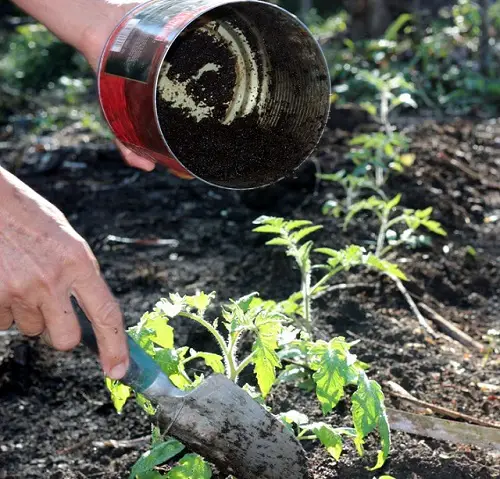
Just like crushed eggshells, you can also sprinkle dry coffee grounds around the base of the plants. Also sprinkle some on the leaves where pests are likely to feed. They will also keep away slugs and snails.
If you’ve got time, you can mix the coffee grounds with water to create a coffee ground “tea.” Let the mixture steep for a few hours, then strain the grounds. Spray this directly on the plants and it would give the same results.
9. Cinnamon
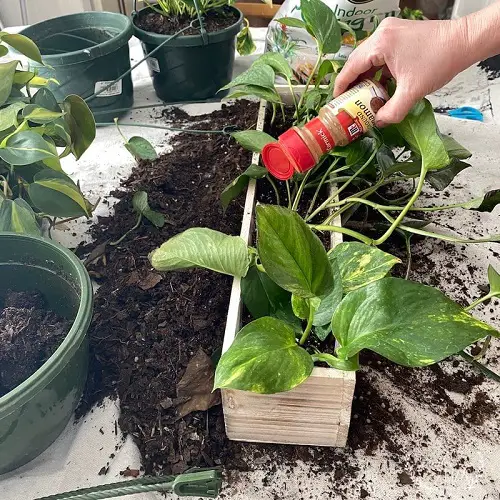
Cinnamon is a natural and non-toxic remedy for pests. A little bit of ground cinnamon on and around the plant can keep away ants, aphids, and gnats.
If you can, sprinkle it after rain. It will have a better effect. The scent of cinnamon will fade over time, so you will need to reapply it regularly.
10. Milk
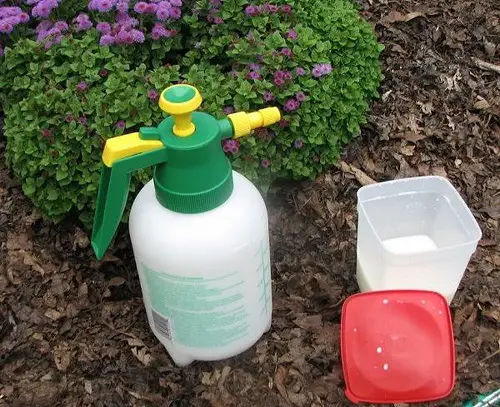
Milk has been a folk remedy for pest control for some time, particularly in gardens. The science behind it is a bit fuzzy, but it’s thought to work in a few ways. One is that the proteins and fats in milk coat insects, smothering them. Milk also deters some pests with its taste or smell.
Just mix milk and water in a spray bottle. People do it in a ratio of 1 part milk to 9 parts water. But you can experiment with different ratios to see what works best for you.
11. Cooking Oils
When mixed with water and a little dish soap, common cooking oils like canola, vegetable, or even olive oil can create a homemade insecticide. This spray works by smothering soft-bodied pests like aphids, mites, and whiteflies.
The oil coats the insect’s body, harming its respiratory system and leading to suffocation. Since it’s non-toxic to humans and beneficial insects, it’s a relatively safe option for use around vegetables and other plants.
12. Hydrogen Peroxide
Mix a part of hydrogen peroxide in 10 parts of water and watch the magic happen as you use this spray. Diluted hydrogen peroxide (around 3% solution) is a disinfectant and is lethal to aphids, mealybugs, fungus gnats, and their larvae. It disrupts their cell walls and breathing, causing them to die.
13. Cornmeal
Cornmeal can be a natural way to get rid of ants in your home. Ants are attracted to cornmeal but cannot digest it.
If you sprinkle it around ant trails and cracks or doorways, the ants start taking it back to the colony, and eventually, they die. You’ll have to be patient, though because the results take a couple of weeks.
14. Wood Ash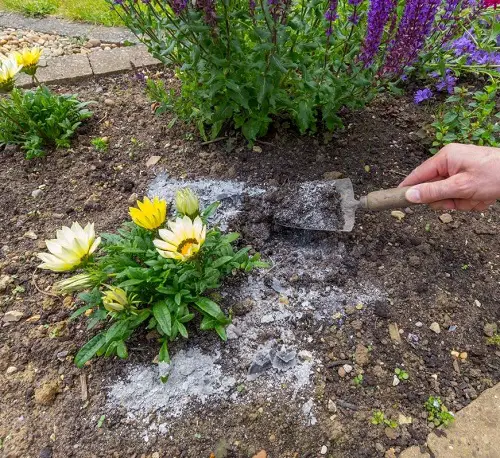
Wood ash is another great home remedy with a common item for pest problems. It has an abrasive texture and is alkaline in nature. That’s why it irritates slugs and snails.
Sprinkle a thin layer of ash around the base of your plants or create a barrier around the garden. Make sure you reapply it after rain or heavy watering, as the ash loses effectiveness when wet.
15. Listerine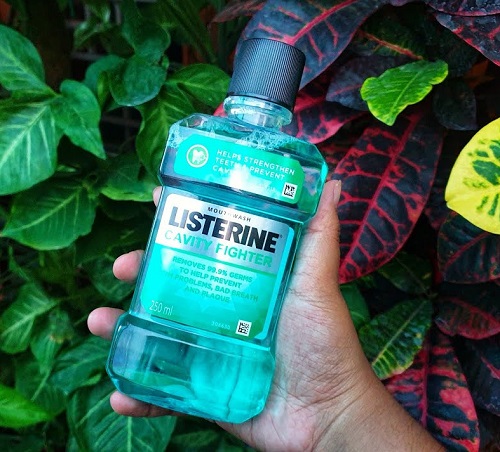
The alcohol content in Listerine disrupts the insects’ exoskeletons, and the strong, minty scent can deter them. Mix a cup of Listerine with 3 cups of water and make a spray.
Spray the Listerine solution you have prepared directly on the affected plants’ leaves and stems and areas where pests are present. It will help you deter aphids, mealybugs, and spider mites without any fuss.
16. Yellow Sticky Tape
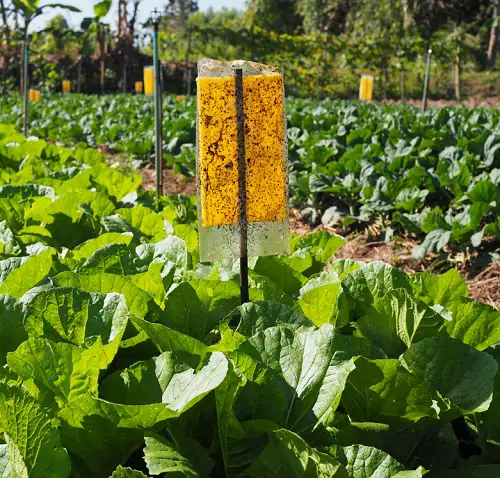
You might be wondering, what’s yellow stick tape doing here? Well, it’s a trap. But not for you. The bright color attracts all kinds of pests, and once they go near it, they stick to the tape and cannot fly away.
Hang the yellow sticky tape horizontally at the plant’s height or at the level where the pests are flying. You can use stakes, dowels, or hooks.
17. Potato Peels
Have you ever tried using slices of raw potato to control fungus gnats? Well, it’s time you did. The potato slices attract the gnats, which will lay their eggs on them.
After a few days, just remove the potato slices and dispose of them. The eggs will be removed with the potato slices, and the gnats will no longer be a problem.
18. Talcum / Baby Powder
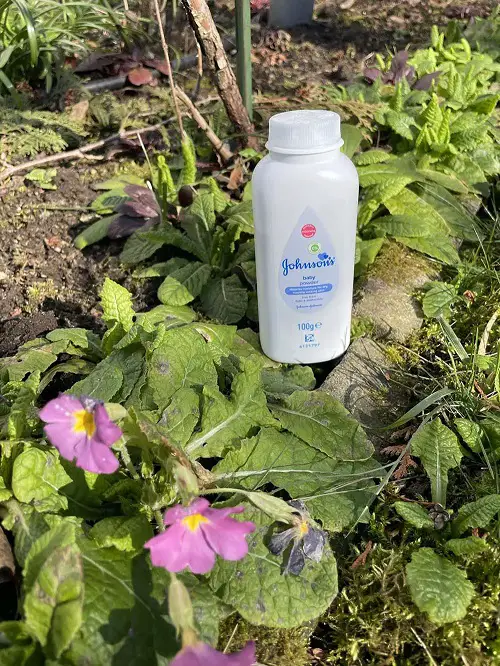
You can also use talcum or baby powder. It can keep away ants, plant lice, and Japanese beetles. Sprinkle it on the infested areas and its smell will send the pests away.
If you’ve got a severe ant problem, a mixture of talcum powder and ethanol (alcohol) can help. It will create a barrier that deters ants from climbing because it disrupts their footing.


